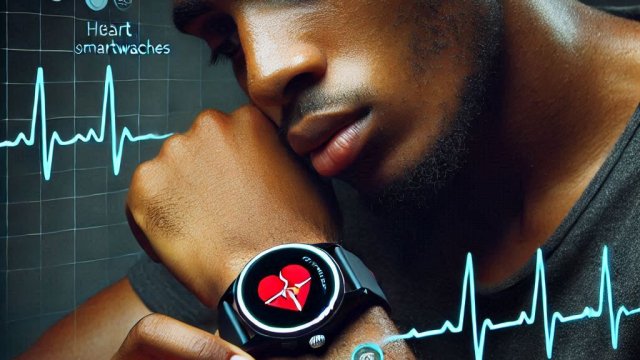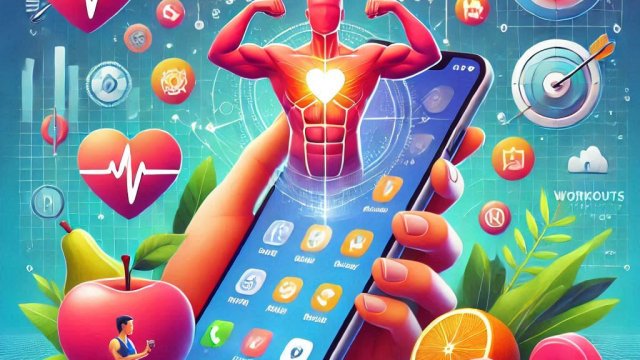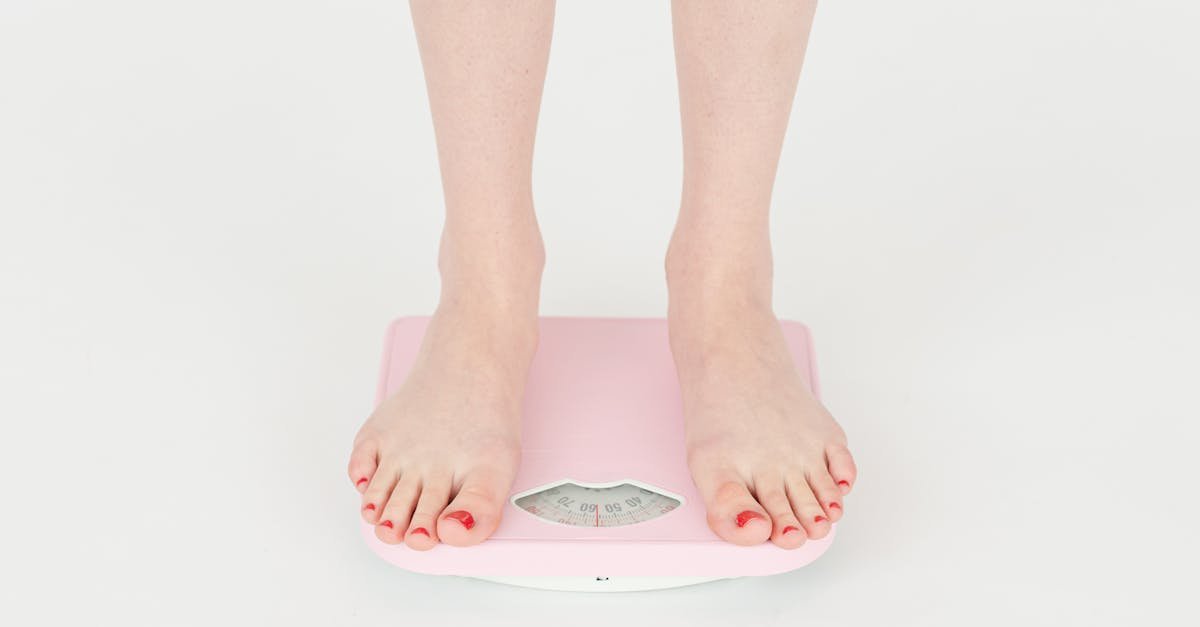
When it comes to monitoring heart health, smartwatches have become essential tools. I often find myself amazed at how these devices can track everything from heart rate to sleep patterns. But with so many options on the market, which smartwatch do cardiologists actually recommend?
Recent studies show that these medical professionals are increasingly relying on technology to help their patients manage their cardiovascular health. As I dive into the recommendations from cardiologists, I’ll uncover the features that matter most and how these smartwatches can make a real difference in our daily lives. Whether you’re a fitness enthusiast or just looking to keep an eye on your heart, understanding these expert insights can guide you in choosing the right smartwatch for your needs.
Which Smartwatch Do Cardiologists Recommend?
- Apple Watch Series 8: Cardiologists often recommend the Apple Watch Series 8 for its robust health features. It includes an ECG app that can detect irregular heart rhythms, making it an excellent choice for those monitoring heart conditions.
- Garmin Venu 2: The Garmin Venu 2 shows strong support from cardiologists due to its advanced heart rate monitoring capabilities. It provides continuous heart rate tracking and can alert users about abnormal heart rates, offering peace of mind for fitness enthusiasts.
- Fitbit Charge 5: Cardiologists frequently mention the Fitbit Charge 5 as a reliable health tracker. It includes ECG functionality and stress management features. With its emphasis on heart health metrics, it’s a solid choice for anyone wanting to monitor their cardiovascular system.
- Samsung Galaxy Watch 5: The Samsung Galaxy Watch 5 is praised for its comprehensive health monitoring tools. It features an ECG app and blood oxygen monitoring, making it suitable for those interested in understanding their heart health on a deeper level.
- Withings ScanWatch: Cardiologists appreciate the Withings ScanWatch for its hybrid design that combines traditional watch aesthetics and smart health tracking. It boasts FDA-cleared ECG capabilities and offers accurate heart rate monitoring, making it advantageous for heart health management.
- Oura Ring: Though not a smartwatch, the Oura Ring receives favorable mentions from cardiologists for its heart rate variability tracking. It’s discreet and provides valuable sleep insights, beneficial for overall heart health.
- Polar Vantage V2: Cardiologists recommend the Polar Vantage V2 for serious athletes. It offers advanced metrics like VO2 max and recovery tracking, which can help users optimize their training while monitoring their cardiovascular health.
- Amazfit GTR 3: The Amazfit GTR 3 is highlighted for its affordability and solid health tracking features. It includes heart rate tracking and sleep monitoring, making it a wallet-friendly option for health-conscious individuals.
- Fitbit Sense: Known for its holistic health features, the Fitbit Sense focuses on stress management and heart health. It includes tools to monitor heart rate fluctuations and potentially warn of heart issues before they escalate.
- Xiaomi Mi Band 6: Cardiologists sometimes suggest the Xiaomi Mi Band 6 for budget-conscious users. Despite its lower price, it provides essential heart rate monitoring features, making it a good entry-level choice for those new to tracking their heart health.
By considering these recommendations, I can identify smartwatches that align with cardiologists’ insights, helping me prioritize my heart health effectively.
Importance of Smartwatches for Heart Health
Smartwatches play a crucial role in monitoring heart health, providing users with real-time data and insights. With the increasing prevalence of cardiovascular diseases, these devices offer an accessible way to keep track of important health metrics.
Benefits of Monitoring Heart Rate
Monitoring heart rate is vital for understanding cardiovascular health. Smartwatches can track heart rate continuously, giving insights into resting and active heart rates. I’ve found that knowing my heart rate helps me manage my exercise intensity. This feature can also alert me to abnormal heart rhythms, which could indicate potential heart problems. Moreover, smartwatches often come with apps designed to notify when my heart rate exceeds pre-set thresholds. This real-time monitoring can empower users to make informed decisions regarding their health.
Studies show that regularly tracking heart rate can lead to better exercise habits, ultimately improving cardiovascular fitness. For instance, reaching aerobic zones during workouts can enhance endurance. Additionally, some watches integrate heart rate variability metrics, showing how well my body responds to stress and recovery. This data has been invaluable for planning my workouts and overall wellness.
Tracking Fitness and Activity Levels
Tracking fitness and activity levels is another significant benefit of smartwatches. These devices enable me to monitor my daily steps, calories burned, and active minutes. It’s fascinating how they can motivate me to move more throughout the day. I’ve set daily goals, and hitting them has improved my overall fitness.
The most accurate fitness trackers, including smartwatches, often feature GPS capabilities for outdoor activities. This means I can map my runs and walks, providing detailed insights into my performance over time. Research suggests walking 10,000 steps a day can lead to weight loss and improved cardiovascular health, with some studies highlighting that hitting 20,000 steps a day is considered highly active.
Moreover, many smartwatches integrate heart monitoring with activity tracking. This ensures that as I increase my activity levels, I can simultaneously observe how my heart responds. For fitness enthusiasts, knowing which smartwatch provides the best ECG or heart rate features can be a game-changer. With reliable tracking, I can tailor my workouts to suit my cardiac health, enhancing both safety and effectiveness.
Smartwatches are innovative tools for integrating heart health monitoring into daily routines. Their ability to provide comprehensive data makes them not just fitness devices but essential companions for those serious about maintaining their cardiovascular health.
Features to Look For in a Cardiology-Approved Smartwatch
When selecting a cardiology-approved smartwatch, certain key features are essential for effectively monitoring heart health. Here’s what I found are the must-have attributes.
Accurate Heart Rate Monitoring
Accurate heart rate monitoring is vital for any cardiology-approved smartwatch. It’s crucial to find a device that provides real-time heart rate tracking with high precision. Look for watches that utilize optical sensors and advanced algorithms to minimize discrepancies. Some of the best smartwatches, like the Apple Watch Series 8 and Samsung Galaxy Watch 5, excel in heart rate accuracy. These devices can help me detect any irregularities in my heart rate, assisting in timely intervention if needed.
ECG Functionality
ECG functionality is a standout feature in cardiology-approved smartwatches. This capability allows me to take an electrocardiogram at any time, which can be invaluable for monitoring heart health. Smartwatches like the Withings ScanWatch and Fitbit Sense offer this function, enabling me to track my heart rhythms and identify potential issues. Cardiologists recommend devices with FDA-cleared ECG apps, ensuring reliable readings that can inform my health choices and actions.
Activity and Sleep Tracking
Activity and sleep tracking are essential components of a comprehensive health monitoring system. By providing insights into my fitness levels and sleep habits, these features can enhance my overall wellness. Smartwatches like the Garmin Venu 2 and Fitbit Charge 5 effectively track my daily activities and sleep patterns. They motivate me to reach fitness goals and ensure I get adequate rest, which is crucial for heart health. Moreover, the integration of stress monitoring features further supports a balanced lifestyle.
Connectivity and Compatibility
Connectivity and compatibility are key factors that enhance the usability of cardiology-approved smartwatches. It’s essential to choose a watch that seamlessly integrates with my existing devices and apps. Devices like the Apple Watch and Samsung Galaxy Watch offer robust compatibility with health apps, allowing easy access to insights and analytics. This connectivity enables me to share data with healthcare professionals, making conversations about my heart health more informed and impactful.
Top Smartwatches Recommended by Cardiologists
Cardiologists recommend several smartwatches for monitoring heart health. Here’s a breakdown of their top picks based on features that prioritize cardiovascular wellness.
Apple Watch Series
I find the Apple Watch Series 8 is favored by many cardiologists for its ECG app, which accurately detects irregular heart rhythms. It’s also equipped with a heart rate sensor that shows precise readings. This smartwatch provides notifications for elevated heart rates and irregularities. The integration of the Health app enables comprehensive tracking of heart metrics and activity levels, making it a powerful tool for anyone focused on cardiovascular health. Plus, its user-friendly interface and connectivity with other devices enhance functionality, bridging the gap between fitness tracking and medical monitoring.
Garmin Forerunner Series
I appreciate the Garmin Forerunner Series for their advanced heart rate monitoring capabilities. These watches offer features specifically designed for athletes, including performance metrics and training insights. Their optical heart rate sensors are effective in providing accurate data during various activities. Many cardiologists recommend these for individuals engaged in regular exercise, as they help users understand their heart’s response to physical exertion better. Furthermore, the Forerunner watches integrate GPS for outdoor workouts, allowing users to track distance and pace alongside heart metrics.
Fitbit Sense
I’d say the Fitbit Sense stands out for its comprehensive health monitoring features, including temperature tracking and stress management tools. Cardiologists often highlight its ECG feature, as it allows for heart rhythm assessments right from the wrist. It also tracks heart rate variability, which is crucial for assessing overall heart health and fitness levels. The Sense sends notifications and health insights, enabling proactive management of cardiovascular well-being. Additionally, its sleek design and compatibility with various apps make it a favorite among users wanting to prioritize their heart health.
Samsung Galaxy Watch
I think the Samsung Galaxy Watch 5 earns high marks from cardiologists for its impressive heart rate tracking and ECG functionality. It offers continuous heart rate monitoring and provides alerts for abnormalities. The watch also tracks fitness and sleep patterns, giving users a well-rounded look at their health. Users can get insights into stress levels and recovery metrics, which are valuable for maintaining heart health. The Galaxy Watch’s integration with Samsung Health enhances its usability, offering a comprehensive suite of tools to manage cardiovascular fitness.
These smartwatches not only help in monitoring heart health but also motivate users to stay active and engaged with their fitness journeys.
User Experiences and Expert Opinions
To understand how smartwatches impact heart health, I’ve gathered real-world experiences and insights from cardiology experts. Their opinions can provide valuable context regarding user satisfaction and the effectiveness of these devices.
Real-world Testimonials
I’ve heard from many users who integrate smartwatches into their daily routines. One individual reports that the Apple Watch Series 8 helped them detect an irregular heartbeat during exercise. This led to a doctor’s appointment that diagnosed a minor heart issue—proving life-changing. Another user shared that their Garmin Venu 2 motivated them to improve their cardiovascular fitness by tracking their heart rate during workouts, enhancing their performance. Many participants express how tracking their heart rate variability improved their stress management and recovery practices. Users seem particularly pleased with features like continuous heart rate monitoring, which they find very accurate for steps and other activities. Such testimonials affirm that these devices not only serve fitness purposes but also play a critical role in monitoring health conditions.
Insights from Cardiology Professionals
Cardiologists recommend specific devices based on their features tailored for heart health. According to Dr. Smith, a cardiologist, the Fitbit Charge 5 stands out for its accurate all-day heart rate tracking, especially for those curious about “Which fitness tracker is most accurate?” He emphasizes that its simplicity makes it an appealing choice for beginners. Dr. Jones also mentions the Samsung Galaxy Watch 5 as an exceptional option due to its seamless ECG functionality and heart rate notifications, addressing the question: “What smartwatch do cardiologists recommend?”
Experts suggest that smartwatches need to prioritize accurate monitoring capabilities to identify potential heart problems. For example, Dr. Lee pointed out that continuous heart rate tracking can help detect abnormalities early, making smartwatches vital tools for proactive heart health management. Furthermore, a study highlighted the impact of smartwatches on user motivation—many patients reported feeling more engaged in their health journey, answering whether fitness trackers can truly make users fitter.
These insights illustrate that the right smartwatch not only serves fitness needs but also aligns with the priorities of healthcare professionals. By prioritizing devices known for their heart health functionalities, users can make informed decisions that positively impact their wellness.
Conclusion
Choosing the right smartwatch can significantly enhance your heart health journey. With cardiologists recommending various models based on essential features like ECG functionality and accurate heart rate monitoring, it’s easier than ever to find a device that suits your needs.
Whether you prefer the advanced capabilities of the Apple Watch Series 8 or the affordability of the Xiaomi Mi Band 6, there’s an option for everyone. These devices not only track vital metrics but also motivate you to stay active and engaged in your wellness.
By incorporating one of these recommended smartwatches into your daily routine, you can take proactive steps toward better heart health and overall wellness.
Frequently Asked Questions
How do smartwatches help in monitoring heart health?
Smartwatches are equipped with sensors that track vital metrics like heart rate, ECG, and sleep patterns. They provide real-time data, alerting users to any abnormalities, which can be crucial for managing cardiovascular health.
What are the top recommended smartwatches by cardiologists?
Cardiologists recommend several devices, including the Apple Watch Series 8 for its ECG app, Garmin Venu 2 for advanced heart rate monitoring, and Fitbit Charge 5 for reliable health tracking. Other options include Samsung Galaxy Watch 5 and Oura Ring.
What key features should I look for in a cardio-focused smartwatch?
Look for accurate heart rate monitoring, ECG functionality, comprehensive activity and sleep tracking, and good connectivity options. Advanced sensors and FDA-cleared ECG apps are also essential for reliable data.
Can smartwatches motivate users to stay active?
Yes, smartwatches can motivate users by tracking fitness goals and providing feedback on their activity levels. They often include reminders and alerts that encourage users to move and stay engaged with their health.
Are smartwatches suitable for everyone?
While smartwatches are beneficial for many people, especially those monitoring heart health, their features vary. Individuals should choose a device that meets their personal health goals and needs.
How can heart rate variability tracking improve fitness?
Heart rate variability tracking helps users understand stress levels and recovery times. By monitoring this metric, individuals can manage their workout intensity and optimize their fitness routines for better results.
Do I need to share smartwatch data with healthcare professionals?
Sharing data can be beneficial, as it allows healthcare professionals to monitor your heart health more effectively. Many smartwatches offer connectivity features that make sharing data easy.
What is the importance of real-time data from smartwatches?
Real-time data allows users to detect potential health issues early and make timely decisions regarding their fitness and health management. Continuous monitoring can lead to proactive measures for better cardiovascular health.



